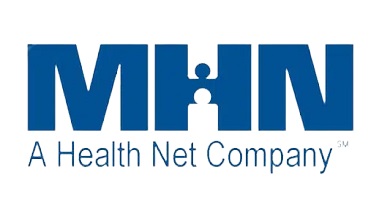
A Comprehensive Guide

Introduction:
In the realm of mental health, effective medication management plays a pivotal role in alleviating symptoms and promoting overall well-being. As advancements in psychiatry continue to unfold, it's crucial for both patients and practitioners to navigate the complexities of medication management with clarity and understanding. In this blog post, we delve into the key aspects of psychiatric medication management, offering insights that empower individuals to make informed decisions about their mental health.
1. Understanding the Importance of Medication Management in Psychiatry:
Begin by emphasizing the significance of medication management in treating psychiatric disorders. Discuss how medications can help regulate neurotransmitters, stabilize mood, and improve cognitive function. Highlight the role of medication as part of a holistic approach to mental health, in conjunction with therapy and lifestyle changes.
2. The Role of Psychiatric Medications:
Explore the different classes of psychiatric medications, such as antidepressants, antipsychotics, mood stabilizers, and anxiolytics. Provide a brief overview of each class, explaining their primary functions and common uses. Use accessible language to make this information understandable to a broad audience.
3. The Importance of Personalized Treatment Plans:
Emphasize the individualized nature of psychiatric medication management. Discuss how a one-size-fits-all approach doesn't apply in mental health and that treatment plans should be tailored to each person's unique needs. Highlight the role of psychiatrists and mental health professionals in conducting thorough assessments to determine the most appropriate medications for a specific individual.
4. Navigating Potential Side Effects:
Acknowledge that like any medication, psychiatric drugs may have side effects. Discuss common side effects associated with different classes of medications and stress the importance of open communication between patients and their healthcare providers. Encourage individuals to report any side effects promptly so that adjustments can be made to the treatment plan if necessary.
5. Compliance and Adherence:
Address the issue of medication compliance and adherence. Discuss the importance of taking medications as prescribed and the potential consequences of non-compliance. Offer practical tips for building a routine around medication management to increase adherence.
6. Regular Monitoring and Adjustments:
Highlight the need for ongoing monitoring of medication effectiveness and potential adjustments. Explain that psychiatric medications may need to be fine-tuned over time, and regular check-ins with healthcare providers are essential to assess progress and address any emerging issues.
Combining Medication with Therapy:
Illustrate the synergy between medication management and therapy. Discuss how a combined approach can yield optimal results in treating psychiatric disorders. Encourage readers to consider therapy as an integral part of their mental health journey.
Conclusion:
Wrap up the blog by summarizing the key points discussed, emphasizing the importance of informed decision-making in psychiatric medication management. Encourage readers to engage in open and honest communication with their healthcare providers and take an active role in their mental health journey. By understanding the nuances of medication management in psychiatry, individuals can embark on a path towards improved well-being and a more fulfilling life.

We have some of the best doctors and therepists on our panel. We are here to provide the best care for you. Although we may not be always perfect, but we strive to provide the best care and experience to our patients.
We are in network with most major insurance providers in California. If you do not see your insurance provider here, please call us. We may still be able to serve you. All our providers can provide services on cash basis as well. NOTE: Our naturopathy services are not covered by any insurance, and is a cash only service.
















A Comprehensive Guide to Psychiatry and Mental Well-Being
Read MoreA closer look at how constant AI exposure shapes stress, mood, and mental well-being in the digital age.
Read More.
Read MoreHarnessing Holistic Healing for Mental Health Success, an in-depth explanation
Read MoreNutrition in Complementary and Alternative Medicine
Read MoreBridging Conventional and Complementary Approaches
Read MoreSupporting Your Health Through Evidence-Based Integrative Care
Read MoreIntegrative Treatment of Brain Fog
Read MoreThe Transformative Role of Supplements
Read MoreLGBTQ Issues
Read MoreAchieve Hormone Balance and Mental Health to Understand the Intimacy Between Mood Swings and Molecules
Read More‘Insta-gratification’ is so addictive—so are all social media apps. Isn’t it? Just why it is important to pay close attention to the interconnected nature of social media and mental health.
Read MoreA Comprehensive Guide
Read MoreAnxiety and Integrative Medicine - Healing Anxiety and Its Causes Inside Out
Read MoreWhat Science Says About the Mind-Body Connection for Better Health
Read MoreWhen Trauma Prevails—How to Manage PTSD With Integrative Medicine
Read MoreADHD treatment
Read MoreNaturopathy in Modern Integrative Healthcare
Read MoreIntegrative Diagnosis and Treatment of ADHD
Read MoreTreatment of depression using Integrative Medicine
Read More